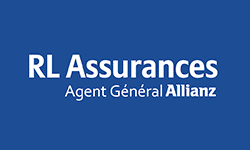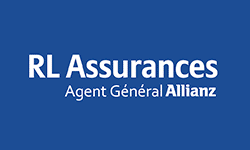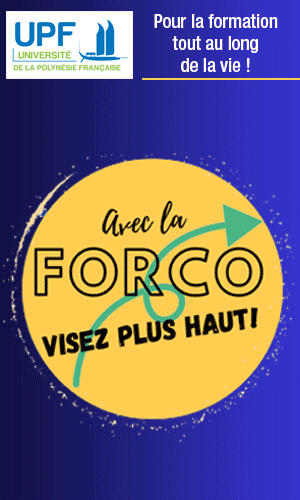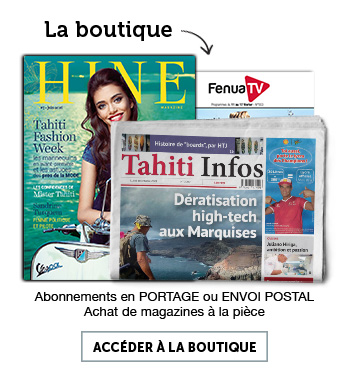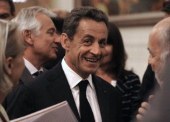
Nicolas Sarkozy lors de son escale à Pekin
NOUMÉA, 25 août 2011 (AFP) - Nicolas Sarkozy est arrivé vendredi peu avant 10h30 locales, en Nouvelle-Calédonie, pour une visite de deux jours et demi dans cet archipel en proie à des tensions politiques et sociales.
Le président de la République ouvrira samedi soir les XIVè Jeux du Pacifique.
C'est la première fois qu'il se rend dans ce territoire d'outre-mer, celui qui l'avait le mieux élu en 2007 (62,8%).
Il arrive de Pékin où il a fait une halte pour avoir un entretien et un dîner avec son homologue chinois Hu Jintao.
Il est accompagné de deux ministres, Marie-Luce Penchard (Outre-mer) et Chantal Jouanno (Sports), ainsi que des anciens ministres Jean-Marie Bockel et Christian Blanc, qui avait été chargé, en 1988, d'une mission de dialogue après le drame d'Ouvea, au cours duquel vingt-cinq personnes trouvèrent la mort, dont dix-neuf indépendantistes, à la suite d'une prise d'otage.
Plusieurs sportifs l'accompagnent également, dont le nageur Alain Bernard (champion olympique), l'athlète Marc Raquil (ex-champion du monde de 4X400 mètres), et Robert Teriitehau (triple champion du monde de planche à voile).
L'intersyndicale contre la vie chère de Nouvelle-Calédonie, qui voulait manifester lors de l'arrivée du président, a annoncé mercredi qu'elle avait renoncé, en raison de "petites avancées".
M. Sarkozy arrive en Nouvelle-Calédonie au moment où l'archipel est traversé par une crise politique et des tensions sociales qui ont dégénéré le 6 août en affrontements meurtriers.
npk/dpn
Le président de la République ouvrira samedi soir les XIVè Jeux du Pacifique.
C'est la première fois qu'il se rend dans ce territoire d'outre-mer, celui qui l'avait le mieux élu en 2007 (62,8%).
Il arrive de Pékin où il a fait une halte pour avoir un entretien et un dîner avec son homologue chinois Hu Jintao.
Il est accompagné de deux ministres, Marie-Luce Penchard (Outre-mer) et Chantal Jouanno (Sports), ainsi que des anciens ministres Jean-Marie Bockel et Christian Blanc, qui avait été chargé, en 1988, d'une mission de dialogue après le drame d'Ouvea, au cours duquel vingt-cinq personnes trouvèrent la mort, dont dix-neuf indépendantistes, à la suite d'une prise d'otage.
Plusieurs sportifs l'accompagnent également, dont le nageur Alain Bernard (champion olympique), l'athlète Marc Raquil (ex-champion du monde de 4X400 mètres), et Robert Teriitehau (triple champion du monde de planche à voile).
L'intersyndicale contre la vie chère de Nouvelle-Calédonie, qui voulait manifester lors de l'arrivée du président, a annoncé mercredi qu'elle avait renoncé, en raison de "petites avancées".
M. Sarkozy arrive en Nouvelle-Calédonie au moment où l'archipel est traversé par une crise politique et des tensions sociales qui ont dégénéré le 6 août en affrontements meurtriers.
npk/dpn
French President Sarkozy chooses New Caledonia for first Pacific visit
NOUMÉA, Friday 26 August 2011 (Oceania Flash) – French President Nicolas Sarkozy has arrived on Friday in New Caledonia for a three-day official visit which also marks his first time in the Pacific region since he came into office in 2007.
The highlight of his three-day stay is expected to be on Saturday 27 August evening, when he officially opens the 14th Pacific Games, held this year in New Caledonia.
The trip had been announced several times over the past three years, but had never eventuated.
Sarkozy arrives in this French Pacific territory amidst tensions that have recently arisen, especially unrest on the Loyalty island of Maré, where rival clans have clashed on August 6 over an airport blockade SET up by a group of residents protesting against an announced increase in domestic airfares.
The August 6 clashes left four dead and over thirty injured.
On the political field, New Caledonia’s situation over the past seven months has also been complicated by rifts both within the pro-France and the pro-independence camps, causing instability within the power-sharing government.
New Caledonia’s political situation is SET up following the main guidelines provided by the Nouméa Accord.
The pact, which highlights the notions of “common destiny” for all of New Caledonia’s ethnic groups, was signed in May 1998 between pro-France, pro-independence (mainly indigenous Kanak) local parties and the French government.
It paves the way for a gradual transfer of powers from the metropolitan power to local authorities, as well as a window of opportunity for a self-determination referendum to take place sometime between 2014 and 2018, as part of a UN-monitored decolonisation process.
In the meantime, New Caledonia has been encouraged to explore every possible solution or formula for its institutional future, based on existing examples both in the Pacific region and beyond.
In terms of New Caledonia’s identity, one particular sensitive issue, over the past twelve months, has been the flag.
On the occasion of the visit, in July 2010, of French Prime minister François Fillon, the “double-flag” solution was officially endorsed and therefore, during the Pacific Games as a first opportunity, both the French tricolour flag (blue, white, red) and the colourful pro-independence FLNKS flag will be hoisted.
During his visit in New Caledonia, under heavy security, Sarkozy will be flanked by his minister for overseas countries and territories, Marie-Luce Penchard, his minister for sports Chantal Jouanno, as well as several high-profile French sport personalities.
Sarkozy has already announced he would touch on sensitive issues such as security and the fight against a perceived rising criminality, especially in the urban areas of Nouméa and its greater area where large numbers of New Caledonians from other less favoured provinces (North and Loyalty islands) have chosen to migrate.
He is scheduled to officially open a new police post in a sensitive Nouméa neighbourhood.
Apart from his official opening of the Pacific Games, the French President will speak on several occasions, including on Friday to pay tribute to the contribution of French Pacific soldiers who fought during the world wars of the twentieth century as part of the “Pacific Battalion” (created in 1941).
The Battalion consisted of men from New Caledonia, Wallis and Futuna, French Polynesia and the then New Hebrides (which gained independence to become Vanuatu in 1980).
Sarkozy is also expected to hold talks with a wide spectrum of the political, economic and social stakeholders.
On the economic front, the French Head of State will also pay a visit to the construction sites of New Caledonia’s five-billion-US dollar Northern nickel mine, driven by Swiss mining giant Xstrata in partnership with local partner Société Minière du Sud Pacifique (SMSP).
The Koniambo project as it is called is expected to be commissioned sometime in 2012.
The world class mining project is also part of a political process of “rebalancing” of economic wealth in New Caledonia and is the pendant of another world class project located in Goro (South of the main island of Grande Terre), this one driven by Brazilian giant Vale and about to become operational this year.
All public services, including schools, have been closed for the day on Friday in New Caledonia.
pad
The highlight of his three-day stay is expected to be on Saturday 27 August evening, when he officially opens the 14th Pacific Games, held this year in New Caledonia.
The trip had been announced several times over the past three years, but had never eventuated.
Sarkozy arrives in this French Pacific territory amidst tensions that have recently arisen, especially unrest on the Loyalty island of Maré, where rival clans have clashed on August 6 over an airport blockade SET up by a group of residents protesting against an announced increase in domestic airfares.
The August 6 clashes left four dead and over thirty injured.
On the political field, New Caledonia’s situation over the past seven months has also been complicated by rifts both within the pro-France and the pro-independence camps, causing instability within the power-sharing government.
New Caledonia’s political situation is SET up following the main guidelines provided by the Nouméa Accord.
The pact, which highlights the notions of “common destiny” for all of New Caledonia’s ethnic groups, was signed in May 1998 between pro-France, pro-independence (mainly indigenous Kanak) local parties and the French government.
It paves the way for a gradual transfer of powers from the metropolitan power to local authorities, as well as a window of opportunity for a self-determination referendum to take place sometime between 2014 and 2018, as part of a UN-monitored decolonisation process.
In the meantime, New Caledonia has been encouraged to explore every possible solution or formula for its institutional future, based on existing examples both in the Pacific region and beyond.
In terms of New Caledonia’s identity, one particular sensitive issue, over the past twelve months, has been the flag.
On the occasion of the visit, in July 2010, of French Prime minister François Fillon, the “double-flag” solution was officially endorsed and therefore, during the Pacific Games as a first opportunity, both the French tricolour flag (blue, white, red) and the colourful pro-independence FLNKS flag will be hoisted.
During his visit in New Caledonia, under heavy security, Sarkozy will be flanked by his minister for overseas countries and territories, Marie-Luce Penchard, his minister for sports Chantal Jouanno, as well as several high-profile French sport personalities.
Sarkozy has already announced he would touch on sensitive issues such as security and the fight against a perceived rising criminality, especially in the urban areas of Nouméa and its greater area where large numbers of New Caledonians from other less favoured provinces (North and Loyalty islands) have chosen to migrate.
He is scheduled to officially open a new police post in a sensitive Nouméa neighbourhood.
Apart from his official opening of the Pacific Games, the French President will speak on several occasions, including on Friday to pay tribute to the contribution of French Pacific soldiers who fought during the world wars of the twentieth century as part of the “Pacific Battalion” (created in 1941).
The Battalion consisted of men from New Caledonia, Wallis and Futuna, French Polynesia and the then New Hebrides (which gained independence to become Vanuatu in 1980).
Sarkozy is also expected to hold talks with a wide spectrum of the political, economic and social stakeholders.
On the economic front, the French Head of State will also pay a visit to the construction sites of New Caledonia’s five-billion-US dollar Northern nickel mine, driven by Swiss mining giant Xstrata in partnership with local partner Société Minière du Sud Pacifique (SMSP).
The Koniambo project as it is called is expected to be commissioned sometime in 2012.
The world class mining project is also part of a political process of “rebalancing” of economic wealth in New Caledonia and is the pendant of another world class project located in Goro (South of the main island of Grande Terre), this one driven by Brazilian giant Vale and about to become operational this year.
All public services, including schools, have been closed for the day on Friday in New Caledonia.
pad

